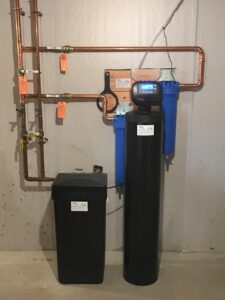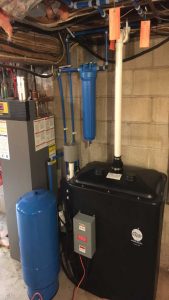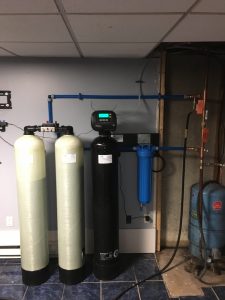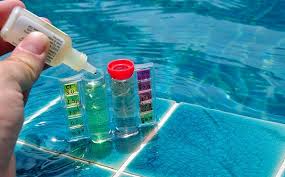Water filtration systems can provide you with truly excellent water quality for your home or business. A water test is the best place to start to determine what should be removed from the water supply.
WATER TEST & ANALYSIS
Testing should be conducted by an EPA or Massachusetts state certified laboratory. Additionally, for proper sampling for what to test, you should contact a lab or water treatment professional for assistance. Furthermore, certain items can be tested for on-site by a qualified water treatment professional For health threat contaminants, a proper sample should be taken to a certified state laboratory. Typical items tested for are as follows:
COMMON WATER QUALITY ISSUES IN GROTON
| Coliform bacteria | pH |
| Arsenic | Radon |
| Chloride | Sodium |
| Iron | Sulfate |
| Lead | Conductivity |
| Manganese | Nitrogen-Nitrate |
Common issues encountered in Groton private wells are manganese and iron along with low pH and sometimes radon and arsenic. If the testing results for Radon exceed the current Massachusetts guideline of 10,000 pCi/L in water, the radon must be removed from the water.. Note that New Hampshire requires action if radon is only 2,000 pCi/L (Pico curries per liter), Maine and Rhode Island are at 4,000 pCi/L. The maximum allowable level of Arsenic in drinking water per the EPA is .01 mg/L (Milligrams per liter) or 10 parts per billion. For more information on this see the link at arsenic-in-private-well-water.

High Efficiency Water Softener
EFFECTIVE WATER FILTRATION SYSTEMS
A water softener is typically installed to remove dissolved iron, dissolved manganese and hardness minerals in the water. This technology is called Ion Exchange. Furthermore, sediment filtration will remove particulate iron or manganese in the water as well as other forms of sediment.
REGIONAL HEALTH THREATS – Radon & Arsenic in Private Wells
Removing radon from water requires a system where the water is highly agitated releasing the radon gas from the water into a sealed chamber, It is then safely vented outside the home to ambient air. These systems are typically installed in the basement at the water supply point of entry.

Radon in Water Removal
Arsenic is removed with tanks containing a specific media that “grabs” the arsenic out of the water.

Twin Arsenic system with Ozone
Again, any water filtration system designed should start with a water test before an informed recommendation can be made. For a link to the annual water quality report, see https://www.grotonwater.org/category/consumer-confidence/.




